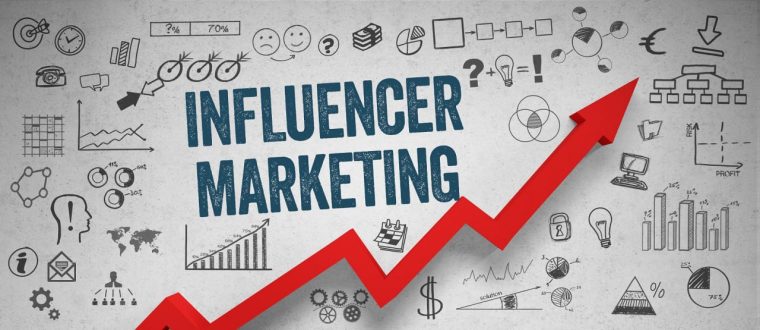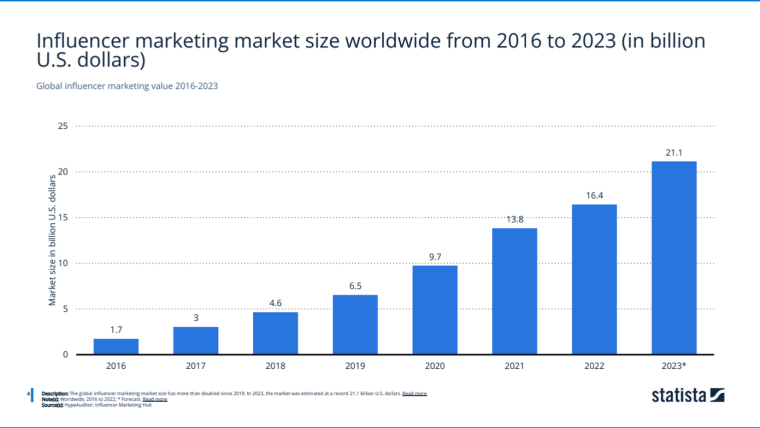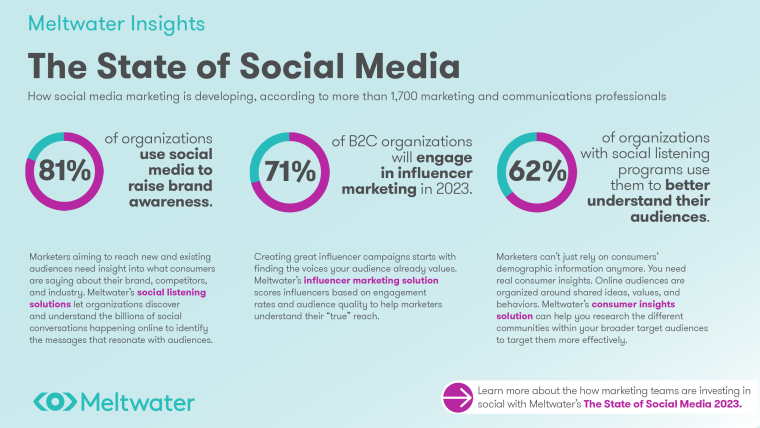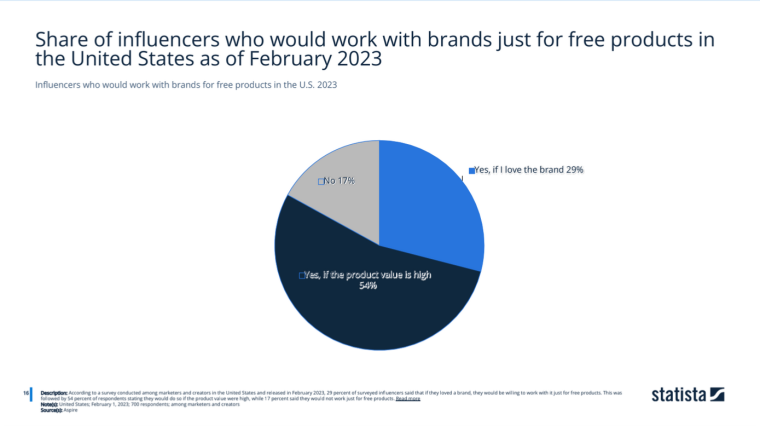
The concept of word-of-mouth advertising is hardly novel. However, the influencer marketing industry, a modernized version of this age-old tactic, has become increasingly popular in recent years.
A profound shift has been noted in the marketing budgets of most brands as well. This shift has seen over 75% of brands allot a designated portion of their budget exclusively for influencer marketing.
This trend isn’t limited to newer, smaller companies, either–major players in the industry are also jumping on the influencer bandwagon.
The success of campaigns such as Coca-Cola’s #ThisOnesFor and Dior’s award-winning 67 Shades underline the efficacy of influencer marketing.
The industry has experienced a substantial uptick from 2016, with the market growing from $1.6 billion to a staggering $21.1 billion globally this year, according to recent Statista research.
With a majority of B2C businesses now allocating dedicated funds towards influencer marketing, these figures illuminate an intriguing and quickly evolving environment for B2C businesses.
Reaping the Marketing Bounty: Growth and ROI in Influencer Marketing
Does investment in influencer marketing truly yield fruitful returns? A study conducted by Harvard Business Review provides an affirmative answer to this question. The research reveals that a marginal increase of 1% in influencer marketing expenditure could result in an engagement uptick of 0.46%.
Indicating that the strategy can indeed deliver positive returns on investment, the study also pointed out that a considerable value remains untapped, as the average firm could elevate their engagement by 16.6% by merely optimizing their influencer marketing budget allocation.
There are several strong reasons why influencer marketing is becoming more popular with B2C companies. First, influencer marketing provides access to a large audience that businesses couldn’t reach before. By teaming up with influencers, brands can tap into the influencers’ existing followers, connecting with more people than they could on their own.
The trust factor also plays a significant role in the success of influencer marketing. When a favorite influencer endorses a brand, the audience, which already has faith in the influencer, is likely to trust the brand as well.
Lastly, influencers can contribute to the creation of more pertinent content that prompts sharing, commenting, and linking by followers.
Influencer marketing is also a formidable tool for bolstering search engine optimization (SEO). When influencers provide links to a website, it’s considered a vote of confidence by search engines like Google, enhancing organic search results.
Survey Says: B2C Businesses are Buying In
A survey from Meltwater revealed that 71% of B2C companies plan to include influencer marketing in their strategies for 2023. This indicates a rising awareness of the advantages that working with influencers provides—greater visibility, trust from the audience, and possible sales. Therefore, influencer marketing is quickly becoming standard for B2C businesses.
To unlock the potential of influencer marketing, B2C businesses must first identify their target audience and choose influencers whose values align with theirs.
A good reputation, a large, engaged following, and interest in collaborating with the brand are key factors that B2C businesses must consider, as a large following doesn’t necessarily equate to program success. Smaller, more engaged audiences may lead to better results.
While the choice of the right influencer is critical, the form of compensation offered by brands also plays a role in the success of such collaborations
The exchange of free products for promotion is a common practice in influencer marketing. Brands often incentivize influencers by offering their products in lieu of payment.
However, Statista’s research shows that influencers’ acceptance of such payment is not assured, with 17% declining such offers outright. Meanwhile, 54% would consider accepting free products if their value is high, and 29% would do so if they genuinely love the brand.
Influencer marketing, which was once an experimental marketing tactic, has now become a staple for B2C businesses. With over 70% of B2C businesses slated to invest in influencer marketing in 2023, the trend is expected to continue.
Related:
- Instagram Keeps Dominating the Influencer Marketing Space in 2023
- Pet Influencers Boom Online But Handling Taxes For Our Furry Friends is Complicated
- TikTok is Prompting Influencers to Challenge Legislators’ Intended Ban
Wall Street Memes (WSM) - Newest Meme Coin
- Community of 1 Million Followers
- Experienced NFT Project Founders
- Listed On OKX
- Staking Rewards


